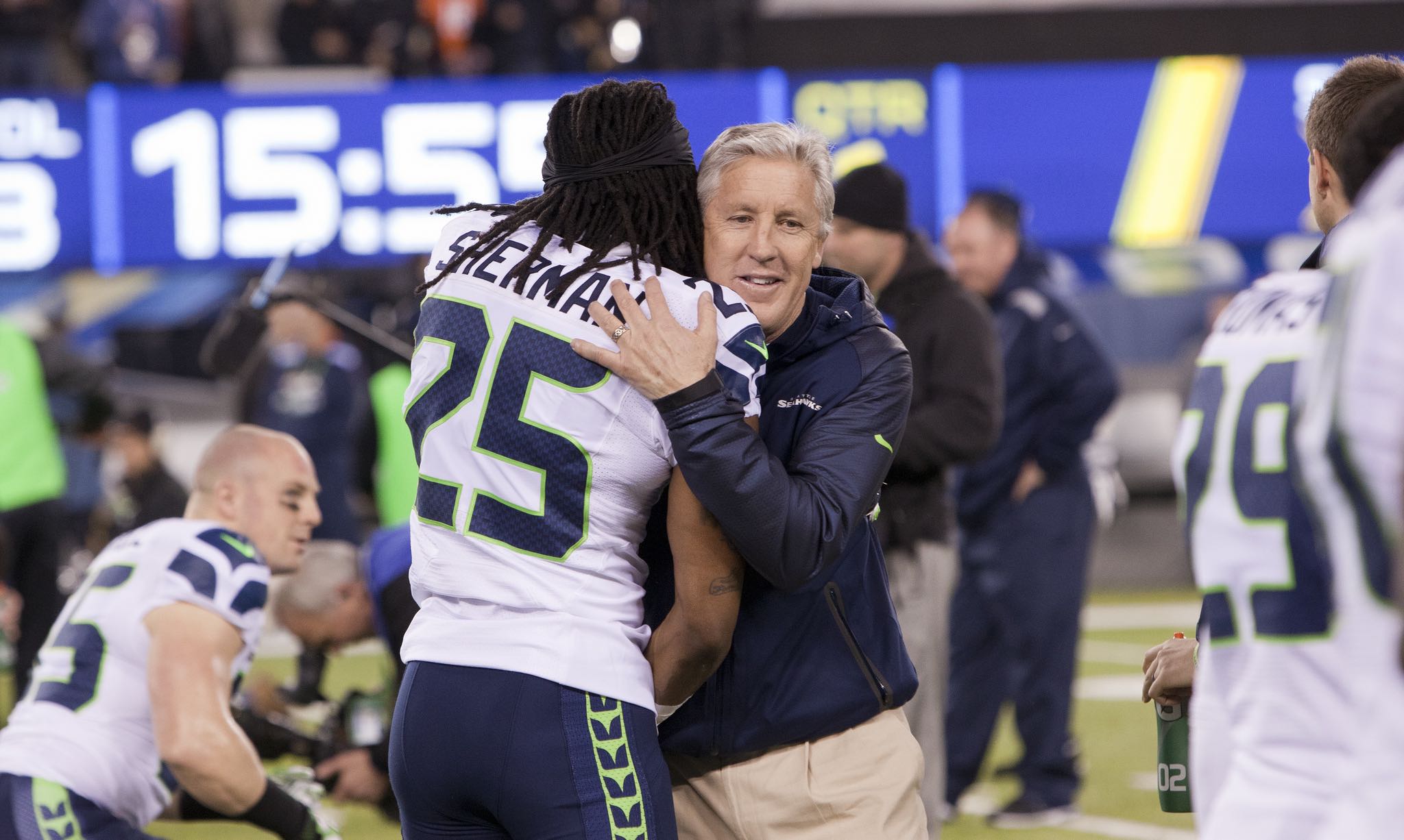
Watching an NFL game between the Seattle Seahawks and the New York Jets, I couldn’t help but notice the glaring difference between their head coaches. It was a study in contrast: The Seahawks’ Pete Carroll (pictured above) was as excitable and animated as the Jets’ Todd Bowles was stoic and expressionless.
Do you think their outward demeanor means either coach is less emotionally invested in the game or the outcome? Of course not. If you’re an NFL coach, you love the game of football, you love your team, and nothing matters more to you than winning.
That said, everyone reacts differently to emotional stimulus. No two people process events or information the same way. Everyone has his own way of doing things. And that’s especially true of leaders, whether they’re coaches on the field, CEOs in corner offices or entrepreneurs working out of a garage.
And yet, we consume massive amounts of generic, one-size-fits-all, self-help advice. You know what I’m talking about: personal routines, habits, and hacks. How to be productive. What to eat. How to behave. When to wake up and go to bed. How to become rich and famous. Why you should quit your day job and start an online business.
If any of those NFL coaches had wasted their precious time on that sort of nonsense, they never would have made it to the top of their profession in the first place. That goes for executives and business leaders, too. The reason is simple. They don’t let anyone else tell them how to think or act.
Real leaders follow their own path. They trust their own instincts. They have the courage and conviction to do things their own way. Of course they have mentors and teachers, but that’s different. That’s personal, not the sort of useless, prescriptive nonsense everyone obsesses over these days.
The publishers of that sort of generic content only care about clicks, ad dollars and subscriptions. They don’t have skin in your game. They don’t have your best interests at heart. Rather, they post popular crap du jour. Their job is to feed millions of readers whatever it is they want to hear. Period.
Now, contrast that with what Steve Jobs had to say during his famous 2005 Stanford University commencement speech:
“Your time is limited, so don’t waste it living someone else’s life. Don’t be trapped by dogma — which is living with the results of other people’s thinking. Don’t let the noise of others’ opinions drown out your own inner voice. And most important, have the courage to follow your heart and intuition. They somehow already know what you truly want to become. Everything else is secondary.”
Jobs was absolutely right about popular dogma and beliefs being a trap. If he only knew how many of you have fallen for that trap through the breakthrough technology Apple created, he’d turn in his grave.
Perhaps the greatest irony of the modern era is that successful executives and business leaders don’t waste a minute of their precious time reading or regurgitating that sort of garbage. They’re too busy working. They’re too busy doing what matters.
According to the latest report from Domo and CEO.com, nearly two thirds of Fortune 500 CEOs have no social media presence whatsoever. And of the rest, nearly three quarters use only LinkedIn and few are active. It’s not just that they have better things to do; they don’t see the value in it. Nor do I.
As for books, CEOs I know read everything from classic literature and popular fiction to historical biographies and the bible. I’ve seen the occasional business book, but usually by an expert like Drucker or Levitt or dramatic stories about how real executives overcame adversity to achieve extraordinary results.
Business books that stand the test of time are as much about human nature – how leaders react to challenging circumstances – as they are about business itself. It’s that human factor, the drama, that inspires readers to think for themselves and draw conclusions that are relevant to their own circumstances.
Whatever you do for a living, have the courage to live your own life, your own way. Avoid the trap of letting others’ opinions dictate your actions. The only path to follow is your own.
To learn what it takes to be successful in today’s highly competitive business world, get Steve’s book, Real Leaders Don’t Follow: Being Extraordinary in the Age of the Entrepreneur. And yes, you’ll find plenty of human drama there.
Image credit Anthony Quintano via Flickr
A version of this post originally appeared on entrepreneur.com